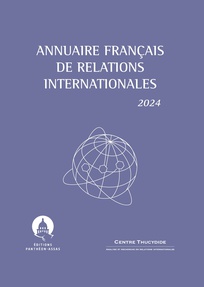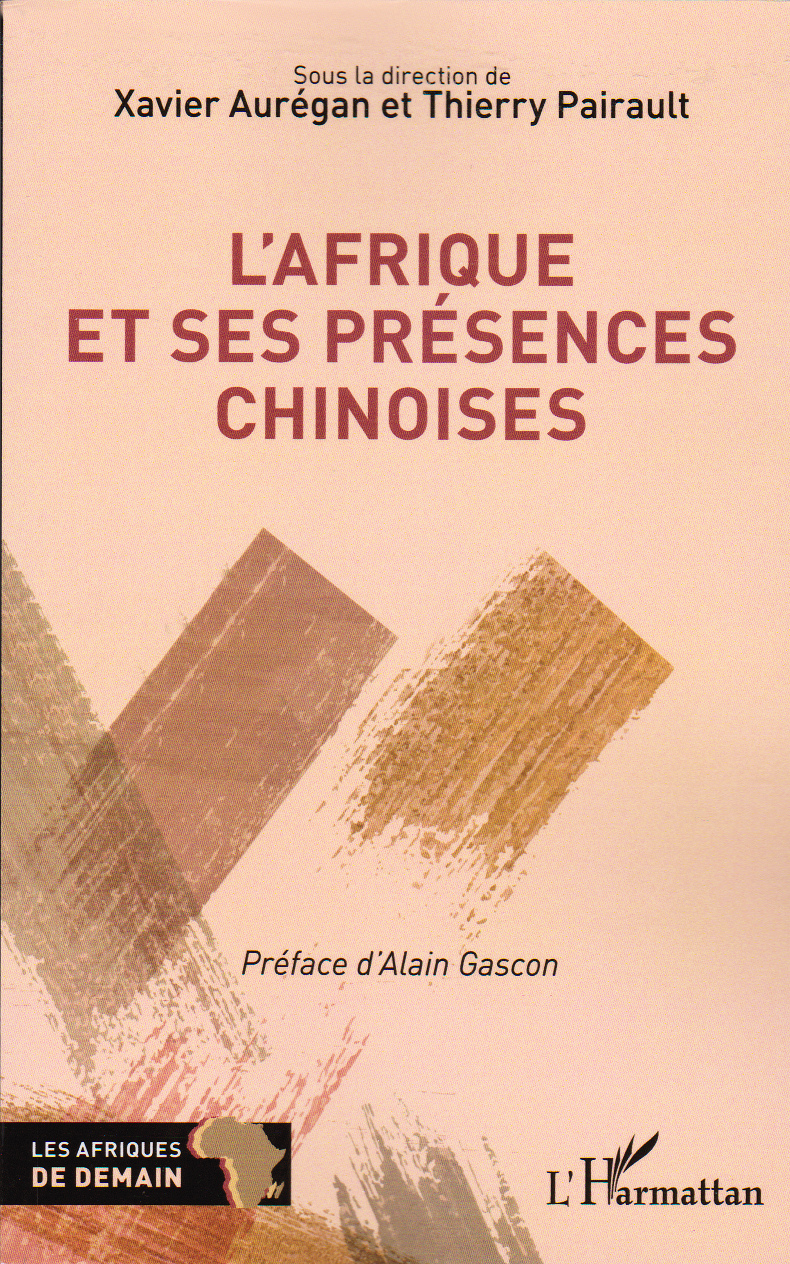À propos d’un nouveau parc industriel chinois en Tanzanie / About a new Chinese industrial park in Tanzania
Thierry Pairault
Dans un rapport que va publier d'ici peu le National Bureau of Asian Research, je note que la Chine avait créé en Tanzanie deux zones de coopération économique et commerciale à l’étranger (ZCECE) 境外经贸合作区 jingwai jingmao hezuo qu (des « zones économiques spéciales » chinoises, voir sur ce site), c’est-à-dire deux parcs industriels créés et gérés par des entreprises de droit chinois à travers leur filiale en Tanzanie. Ce nouveau et troisième parc industriel, dont la création a été annoncée début avril, est lui créé et géré par une entreprise de droit tanzanien fondée par cinq expatriés chinois de longue date. Nous ne sommes donc pas en présence d’une ZCECE puisqu’aux termes d’un texte de 2015 rédigé par le ministère chinois du Commerce et celui des Finances, les ZCECE doivent être sous le contrôle d'une société holding à capitaux chinois constituée en Chine continentale qui, par l'intermédiaire d'une entité à capitaux chinois constituée à l'étranger, investit dans la construction d'un tel parc industriel. De fait, ici, nous sommes en présence de petits entrepreneurs chinois qui, comme par exemple He Liehui à Djibouti, ont tenté l’aventure en exploitant le bénéfice que pouvait leur procurer leur statut de ressortissant de la RPC.
Cette société tanzanienne s’appelle en chinois la Société internationale des constructions unies 联合建设国际有限公司 Lianhe jianshe guoji youxian gongsi, mais en anglais Group Six International car elle est le fruit d’une association entre six employés d’une entreprise publique chinoise du BTP œuvrant au Kenya qui ont décidé de se mettre à leur propre compte. Le leader du groupe est Huang Zaisheng 黄再胜 dont le prénom signifie le « sempiternel gagnant » ; il est originaire de la province du Zhejiang, il a fait ses études supérieures à l’université de Chongqing dont il sort, en 1999, diplômé en gestion immobilière et en contrats internationaux d’ingénierie. Il est alors embauché par le groupe Huashi du Sichuan 四川华西集团 Sichuan Huaxi jituan [littéralement le « groupe sichuanais de l’Ouest chinois »] qui l’envoie au Kenya. Huaxi est entreprise publique qui a été créée dans les années 1950, elle doit son nom anglais Huashi à une transcription fautive de son nom chinois. Au cours de ses premières années, Huang Zaisheng trouve que son employeur est beaucoup trop timoré et qu’il soumet le choix et l’exécution des projets à des procédures beaucoup trop prudentes à son goût. C’est ce qui le pousse à créer en 2006 sa propre entreprise avec l’aide de cinq collègues. Les débuts sont difficiles jusqu’à ce qu’ils remportent un appel d’offres pour la construction d’un hypermarché dans la banlieue de Dar es-Salaam en Tanzanie. Dès lors, les succès succèdent aux succès et, dès 2012, il devient le président de la Chambre de commerce chinoise en Tanzanie.
La création de ce parc industriel (adjacent au port sec de Kwala concédé au Burundi) est clairement une initiative privée soutenue par le gouvernement tanzanien, mais non par le gouvernement chinois. Lors de son inauguration, aucun représentant de l’ambassade de Chine ne semble avoir été présent à côté de la ministre tanzanienne de l’Investissement, de l'Industrie et du Commerce et du « gouverneur de la province du Littoral » (impossible à retracer vu l’imprécision du texte chinois qui visiblement fait une confusion) et une série d’autres officiels tanzaniens. La photo parue dans l’Hebdomadaire des Chinois d’Afrique 非洲华侨周报 Feizhou Huaqiao zhoubao illustre à l’envi cette situation : au premier rang un seul Chinois siège parmi les dignitaires tanzaniens et encore doit-il se contenter d’une place sur le côté. Cette absence rappelle celle lors de l’inauguration en grande pompe d’un parc industriel en 2017 au Maroc par Li Biao du Groupe Haite en partenariat avec la Banque marocaine du commerce extérieur (BMCE), partenariat qui s’est soldé par un échec.

Ce genre d’aventure entrepreneuriale interroge à nouveau sur l’essentialisation des stratégies chinoises d’implantation en Afrique. Si certains parcs industriels en Afrique ont été conçus et développés avec le soutien actif des autorités chinoises pour servir la stratégie chinoise d’internationalisation, d’autres en revanche relèvent d’initiatives entrepreneuriales individuelles sans rapport obligé avec une stratégie nationale unique définie à Pékin. Confondre ces parcs industriels en une seule et unique stratégie reviendrait à essentialiser les présences chinoises en Afrique et donc à en fantasmer les conséquences.
Références :
坦桑尼亚|风正时济扬帆起 击鼓催征开新局--中坦国家工业园项目正式启动
In a forthcoming study by the National Bureau of Asian Research, I note that China has established two Overseas Economic and Commercial Cooperation Zones (OECCZs) 境外经贸合作区 jingwai jingmao hezuo qu (Chinese "special economic zones", see this website) in Tanzania, i.e. two industrial parks established and managed by Chinese incorporated companies through their subsidiaries in Tanzania. This new and third industrial park, whose creation was announced at the beginning of April, is created and managed by a Tanzanian company founded by five long-time Chinese expatriates. So, this is not an OECCZ, since according to a 2015 text drafted by China's Ministry of Commerce and Ministry of Finance, OECCZs must be controlled by a Chinese-funded holding company incorporated in mainland China which, through a Chinese-funded entity incorporated abroad, invests in the construction of such an industrial park. In fact, here we are dealing with small Chinese entrepreneurs who, like He Liehui in Djibouti, have tried their hand at exploiting the benefits of being a PRC national.
The Tanzanian company is called the United Construction International Company 联合建设国际有限公司 Lianhe jianshe guoji youxian gongsi in Chinese, but Group Six International in English because it is the result of a partnership between six employees of a state-owned Chinese construction company working in Kenya who decided to go into business for themselves. The leader of the group is Huang Zaisheng 黄再胜, whose first name means "the perennial winner"; he is originally from Zhejiang province and studied at Chongqing University, graduating in 1999 with a degree in property management and one in international engineering contracts. He was then hired by the Sichuan Huashi Group 四川华西集团 Sichuan Huaxi jituan [literally the "Sichuan Group of Western China"], which sent him to Kenya. Huaxi is a state-owned company that was established in the 1950s, and owes its English name Huashi to a mistranscription of its Chinese name. In his early years, Huang Zaisheng found his employer to be far too timid and to subject the selection and execution of projects to procedures that were far too cautious for his taste. This led him to set up his own company in 2006 with the help of five colleagues. It was a difficult start until they won a tender to build a hypermarket on the outskirts of Dar es Salaam in Tanzania. From then on, one success followed another and, by 2012, he had become the president of the Chinese Chamber of Commerce in Tanzania.
The creation of this industrial park (adjacent to the dry port of Kwala granted to Burundi) is clearly a private initiative supported by the Tanzanian government, but not by the Chinese government. At its inauguration, no representative of the Chinese embassy appears to have been present alongside the Tanzanian Minister of Investment, Industry and Trade and the 'Governor of the Littoral Province' (impossible to trace given the vagueness of the Chinese text, which obviously confuses the issue) and a range of other Tanzanian officials. The photo in the Chinese in Africa Weekly 非洲华侨周报 Feizhou Huaqiao zhoubao illustrates the situation: in the front row, only one Chinese sits among the Tanzanian dignitaries, and even then, he has to make do with a seat on the side. This absence is reminiscent of the grand opening of an industrial park in Morocco in 2017 by Li Biao of the Haite Group in partnership with the Banque marocaine du commerce extérieur (BMCE), a partnership that ended in failure.

This kind of entrepreneurial adventure raises questions about the essentialization of Chinese strategies for setting up in Africa. While some industrial parks in Africa have been designed and developed with the active support of the Chinese authorities in Peking to serve the Chinese internationalisation strategy, others are the result of individual entrepreneurial initiatives that are not necessarily linked to a specific national strategy defined in Peking. To confuse these industrial parks into a single strategy would essentialise the Chinese presences in Africa and therefore fantasise about its consequences.
References:












